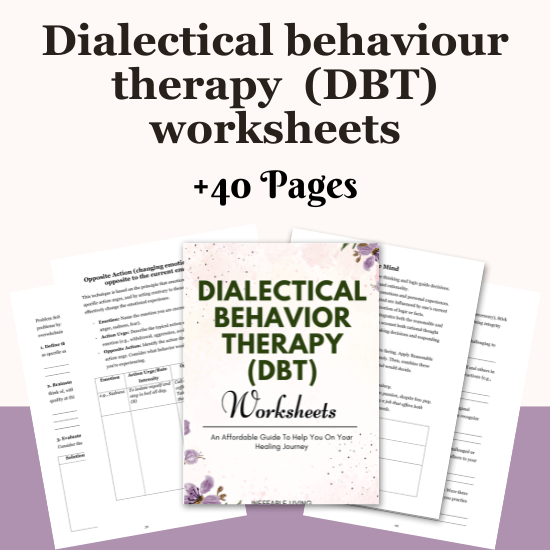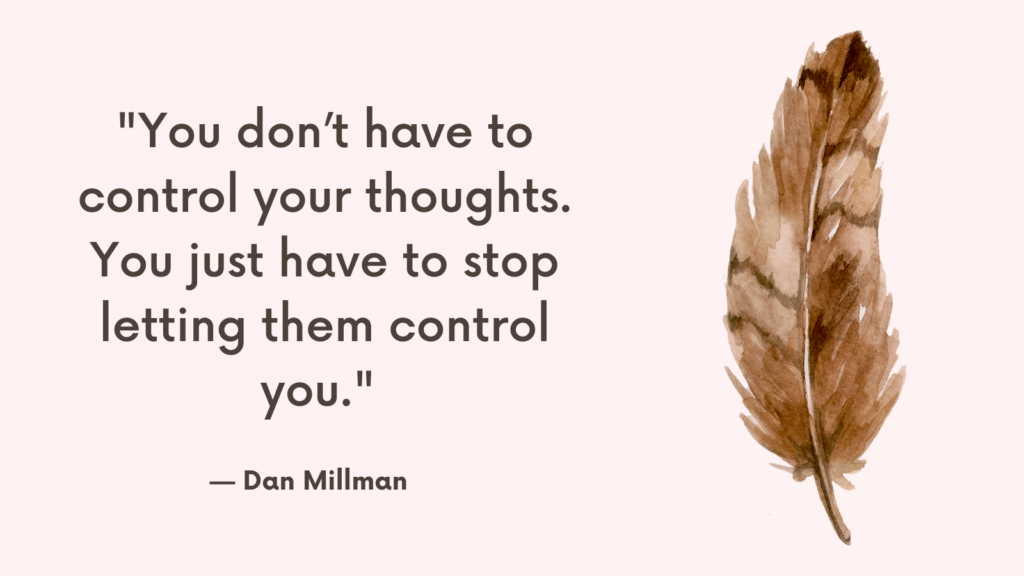In times of crisis, our emotions can feel overwhelming and uncontrollable.
Whether it’s anxiety, anger, or panic, knowing how to manage these intense emotions is crucial.
Dialectical Behavior Therapy (DBT) offers practical skills to help you navigate these moments and regain a sense of calm.
What is DBT?
Dialectical Behavior Therapy (DBT) was developed by Dr. Marsha Linehan, initially to treat Borderline Personality Disorder.
However, its effectiveness has been recognized across various conditions, including depression, anxiety, PTSD, and eating disorders. DBT is particularly valuable for anyone struggling with emotion regulation.
One of the core principles of DBT is its practical approach to managing emotions, making it highly applicable in real-life situations.
Understanding Dialectics
Dialectics is a concept central to DBT. It involves understanding that two seemingly opposite things can both be true.
This perspective helps us move away from extreme thinking and recognize the complexity of situations.
For example, you can need gas and be upset about the high price simultaneously. Accepting this duality allows us to focus on problem-solving rather than getting stuck in emotional extremes.
Related: Best 23 DBT Journal Prompts
The TIPP Skill: Top 4 DBT Skills to Go from Crisis to Calm
The TIPP skill is a cornerstone of DBT, designed to help you manage acute emotional distress by manipulating your body chemistry.
TIPP stands for Temperature, Intense Exercise, Paced Breathing, and Progressive Muscle Relaxation.
1. Temperature
The temperature aspect of TIPP leverages the mammalian diving response, a natural reflex that slows down heart rate and respiration when submerged in cold water.
Here’s how you can use temperature to calm down quickly:
1. Cold Water Submersion: Fill a sink or a large bowl with cold water. Lean over and submerge your face in the water for about 30 seconds. If you can’t hold your breath for that long, come up for air and go back down.
2. Ice Pack: Place an ice pack or a cold towel on your face and lean over.
3. Splashing Cold Water: If submersion isn’t possible, splash cold water on your face.
These methods activate the mammalian diving response, which slows down your physiological responses and helps you regain composure.
2. Intense Exercise
Intense exercise is an excellent way to discharge the excess energy that comes with emotional distress.
When you’re in crisis, your body is primed for action, often feeling agitated and restless. Here are some quick and effective exercises:
– Jumping Jacks: Do 60 seconds of jumping jacks to burn off excess energy.
– Stair Climbing: Run up and down a few flights of stairs.
– Push-Ups or Squats: Engage in a brief, high-intensity exercise that gets your heart rate up.
These activities help to use up the adrenaline and other stress hormones that your body releases during a crisis, helping you to feel more grounded and calm.
Related: Top 9 DBT Pros And Cons
3. Paced Breathing
Breathing exercises are a powerful way to regulate your nervous system.
Many people underestimate the power of the breath, but it can significantly alter your emotional state. Here’s how to practice paired breathing:
– Deep Belly Breathing: Place your hands in a diamond shape around your belly button. As you breathe in deeply, feel your hands rise slightly. This ensures you are using your diaphragm and filling your lungs properly.
– Straw Breaths: Purse your lips as if blowing through a straw, which helps to slow and even out your exhale.
– Alternate Nostril Breathing: Close one nostril and breathe in, then switch and exhale through the other nostril. This can balance your breath and calm your mind.
4. Progressive Muscle Relaxation
Progressive Muscle Relaxation (PMR) involves tensing and then relaxing different muscle groups to release physical tension and calm the mind. Here’s how to do it:
– Tense and Relax: Start from your toes and work your way up to your head. Tense each muscle group for a few seconds and then slowly release.
– Focus on High-Tension Areas: Pay special attention to areas where you typically hold stress, such as your shoulders, jaw, or forehead. Tense these muscles as you inhale, then slowly release the tension as you exhale and say the word “relax” to yourself.
PMR can help you become more aware of where you hold tension and teach you how to release it effectively.
Related: DBT vs CBT vs ACT
Applying DBT Skills in Crisis
Using the TIPP skill during a crisis can help you manage your emotions effectively, creating the mental space needed to address the underlying issue. Here’s a practical example:
Imagine you are about to give an important presentation at work, and you feel overwhelmed with anxiety. Your heart is racing, and your mind is flooded with worries about failure. Here’s how you could use the TIPP skill:
1. Temperature: Splash cold water on your face to activate the mammalian diving response and slow down your heart rate.
2. Intense Exercise: Do a quick set of jumping jacks to burn off the excess energy.
3. Paced Breathing: Practice deep belly breathing to regulate your breath and calm your mind.
4. Progressive Muscle Relaxation: Tense and relax your shoulders and jaw to release physical tension.
By the time you’ve completed these steps, your body’s physiological responses should have slowed, allowing you to approach the presentation with a clearer mind and a calmer demeanor.
Related: DBT For Bipolar: How To Self-Manage Bipolar Disorder Using Dialectical Behavior Therapy (DBT)?
Long-Term Benefits of DBT Skills
While TIPP is effective for immediate crisis management, DBT skills offer long-term benefits. Regular practice of these skills can improve your overall emotional regulation, making you less prone to extreme emotional reactions over time. Here’s how:
– Improved Emotional Awareness: By regularly practicing skills like PMR and paired breathing, you become more attuned to your body’s signals, allowing you to address stress before it escalates.
– Greater Emotional Flexibility: Understanding dialectics helps you move away from black-and-white thinking, fostering a more nuanced and balanced perspective.
– Enhanced Problem-Solving: DBT encourages proactive problem-solving, helping you prevent crises before they occur.
Related: Best 8 Mindfulness Exercises For Adults That Will Help You Regulate Your Emotions

Conclusion
DBT skills are invaluable tools for managing emotional crises.
The TIPP skill, in particular, provides a quick and effective way to regain control when emotions run high.
By understanding and practicing these skills, you can navigate crises more effectively and build long-term emotional resilience.



